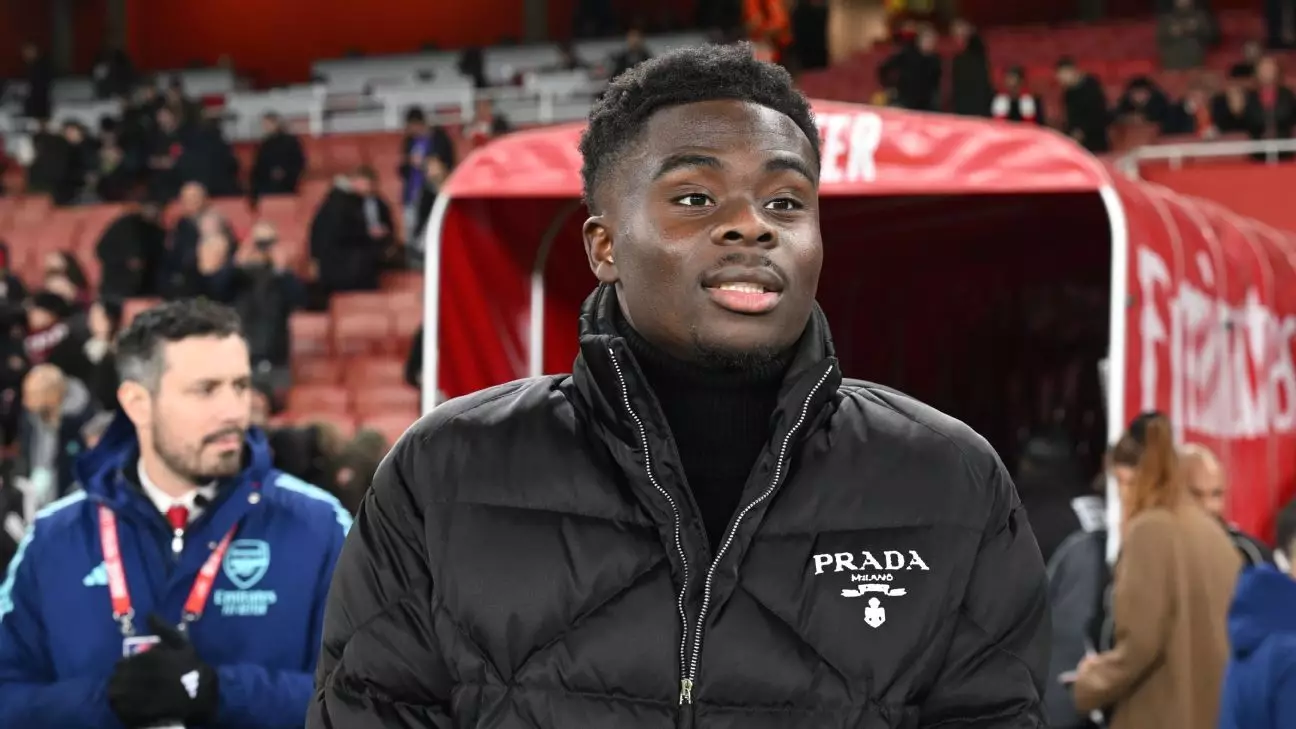In the high-pressure world of professional football, injuries are unfortunate yet commonplace. Recently, Arsenal manager Mikel Arteta emphasized the critical need for Bukayo Saka to prioritize his recovery following a hamstring injury that requires surgery. This insight sheds light on the significance of mental and physical recuperation for athletes, especially during periods of high stress and competition. Arteta’s approach highlights that recovery is not just about physical healing but also about emotional and psychological refreshment.
Arteta’s directive that Saka should step away from the game for relaxation reflects a growing understanding in sports management regarding the impacts of fatigue and mental strain. By encouraging Saka to spend time with family or even alone, Arteta is not merely suggesting rest; he is advocating for a holistic approach to rehabilitation. Time spent away can provide a psychological reset, allowing players to return to their sport rejuvenated. Saka, who is fundamentally committed to his craft, needs this break to ensure that he can sustain his performance levels upon his return.
Arsenal’s struggles in Saka’s absence extend beyond the typical challenges of losing a key player. The team faced early elimination from the FA Cup and is left to face a daunting task in the Carabao Cup after falling behind Newcastle United. These setbacks highlight the interconnected nature of team dynamics. With several critical players sidelined—such as Gabriel Jesus, who is recovering from an ACL injury, and defenders like Takehiro Tomiyasu and Ben White—the situation underscores the necessity of effective squad rotation and depth. Arteta’s strategies are now more vital than ever as he maneuvers through such adversities.
Arteta reassures that Saka’s rehabilitation process provides a perfect opportunity for growth, indicating a thoughtful recognition of the player’s potential. While on the mend, Saka can engage in activities that will aid his recovery without overwhelming him physically. This period can be transformative, offering him the chance to hone his skills mentally—even while off the pitch. Such perspectives on injury recovery can redefine how we view setbacks in sports, shifting the narrative from sheer loss to potential development.
Arteta’s reflections on Saka’s situation resonate beyond mere concern for one player. His statements advocate for a paradigm shift where mental health is considered on par with physical fitness in the professional realm. The dialogue surrounding injured players’ recovery must continue to explore not just how to heal the body but also how to nurture the mind. As Arsenal works through its player injuries, the club’s ability to adapt and support its athletes will ultimately dictate its success—both on and off the pitch.

